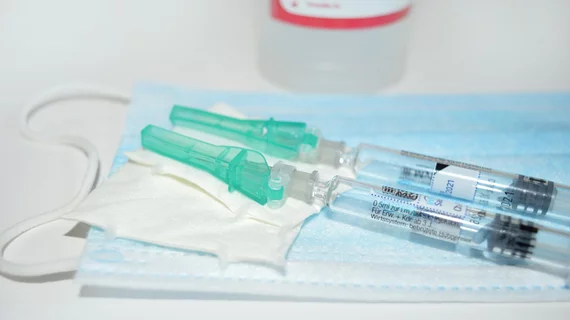New low-cost ultrasound training tool helps clinicians deliver common joint treatment
A new 3D-printed model can help clinicians more accurately perform ultrasound-guided injections commonly used to treat hip and knee pain.
Researchers from the University of Alabama at Birmingham and the University of South Carolina described their anatomical finger phantom April 15 in EMJ Radiology. It cost under $20 and resembles the human finger, with sonography images mimicking bones, ligaments, tendon and other features.
Two recent prospective studies have proven the value of using ultrasound to direct corticosteroid finger injections, the authors noted. One showed that medication was never delivered in nearly 20% of patients treated without imaging assistance.
This training tool can help physicians gain the experience they need to properly treat patients with arthritis. And it should be easier for many organizations to reproduce, the authors noted.
“Many universities have 3D printers available for use, which provides an accessible means of production," lead researcher David Resuehr, PhD, associate professor in the UAB Department of Cell, Developmental and Integrative Biology, said in a university news statement. “Additionally, all software, including computer-aided design, was open-source or free to use under educational licensing agreements."
Treating injured or diseased joints requires clinicians to precisely insert a needle as they drain fluid or inject anti-inflammatory corticosteroids. While some have suggested these shots may be more dangerous than once thought, they are relatively common.
Resuehr and co-author Lee Day, MD, University of South Carolina School of Medicine, found the skills required to inject phantoms under ultrasound guidance were similar to injecting human trigger fingers. The latter occurs when tendon inflammation forces fingers to bend.
The pair said this is the first commercially available trigger finger model.

